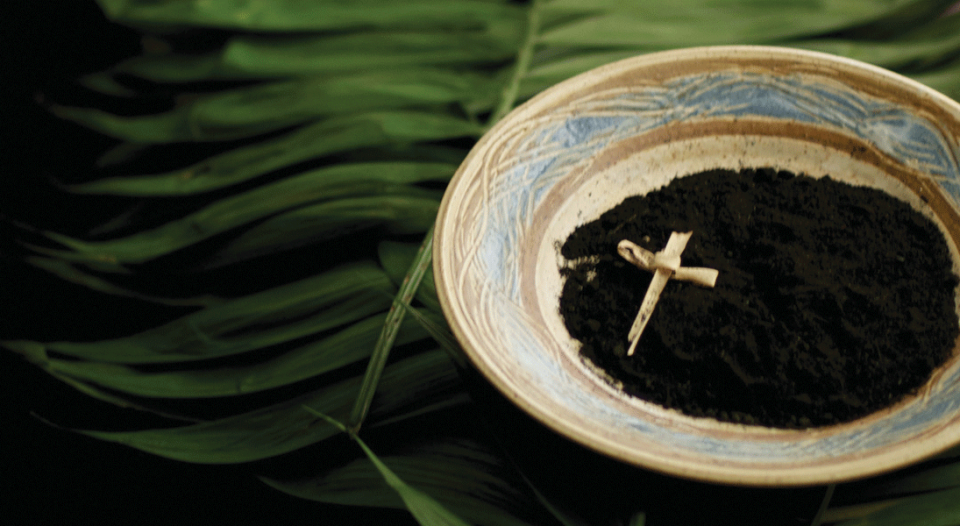Lent is a time of introspection, and even penance, as we look forward with humble awe and deep gratitude to the celebration of Jesus’ resurrection.
The modern practices of Lent have ancient pedigrees. The term “Lent” comes from the Old English word lencten, which referred to the “lengthening” of the daylight hours during spring. Christians in northwestern Europe and the British Isles appropriated this term for the spring liturgical season.
Lent was traditionally a time for preparing both longtime believers and new converts for the welcoming of new Christians into the community through their baptisms, which were celebrated during Eastertide. Lent continues to be a time of preparation of self and the community as we look forward to the expansion of God’s reign and the defeat of sin and death.
Lenten practices traditionally fall into three broad categories: justice toward God, justice toward oneself and justice toward others. Lent is a time of prayer, fasting and almsgiving to meet these goals.
The following activities can help mark this important season:
Justice toward God
- Rededicate yourself to living into your holy vocation to extend God’s reign in your daily life.
- Meditate on God’s faithful and sacrificial love for us to cultivate deep and abiding gratitude.
Justice toward oneself
- Remember in humility that you are created of dust and to dust you shall return.
- Take time to honestly, critically and gently evaluate how you have loved God and neighbor—or not—and how the Spirit might be calling you to do better.
- Fast from rich and delicious food to help yourself consciously break patterns of selfishness and overconsumption.
- Repent of patterns and habits that harm yourself and/or others.
Justice toward others
- Continue the traditional Lenten practice of increased giving to people experiencing poverty.
- Commit your time, energy and resources to supporting social justice causes through such organizations and programs as the Lutheran World Federation and the ELCA Good Gifts project.
- Invite acquaintances (or strangers!) to share a meal and share their stories.
- Take steps toward reconnecting with those from whom you’ve been estranged (if healthy for all).
One of my favorite practices during Lent is a modification of the Jewish ritual Tashlikh. A person will go to their closest flowing water source, such as a stream or river. I like to survey the path my local Mud Creek takes on its way to the Gulf of Mexico, which helps me remember my responsibility to be a good custodian of local waterways. Then I recite, among other prayers, Micah 7:18-19:
Who is a God like you, pardoning iniquity and passing over the transgression of the remnant of your possession? He does not retain his anger forever, because he delights in showing clemency.
He will again have compassion upon us; he will tread our iniquities under foot.
You will cast all our sins into the depths of the sea.
Lint (for Lent!) taken out of one’s pocket—or perhaps a tiny bit of bread or a handful of soil—is cast into the stream or river to be carried away to the sea. The water carrying away the tiny bits of lint that accumulate in my pocket helps me visualize how God takes away my sins and injurious habits that also accumulate over time, so that I’m freed to serve God and neighbor once again.
On Thursdays during Lent, I try to discern patterns that harm myself or my neighbor, and when I come up with something of which I would like to repent, I take from my pocket or wallet a tiny bit of cotton or linen lint (something that will biodegrade quickly and not harm fish or amphibians). On Good Friday, I toss the small collection of natural fibers into the creek, repenting and thanking God for carrying away my sins.
However one practices Lent, it’s a time of introspection and preparing to celebrate Jesus’ taking away of our sins, sinfulness and embrace of death over life. It’s important that we don’t wallow in self-contempt. Rather, with confidence in Jesus’ salvation, we should repent of negative patterns and live into Jesus’ calling to love God and our neighbors. Lent continues to be a time of preparation of self and the community as we look forward to the expansion of God’s reign and the defeat of sin and death.





